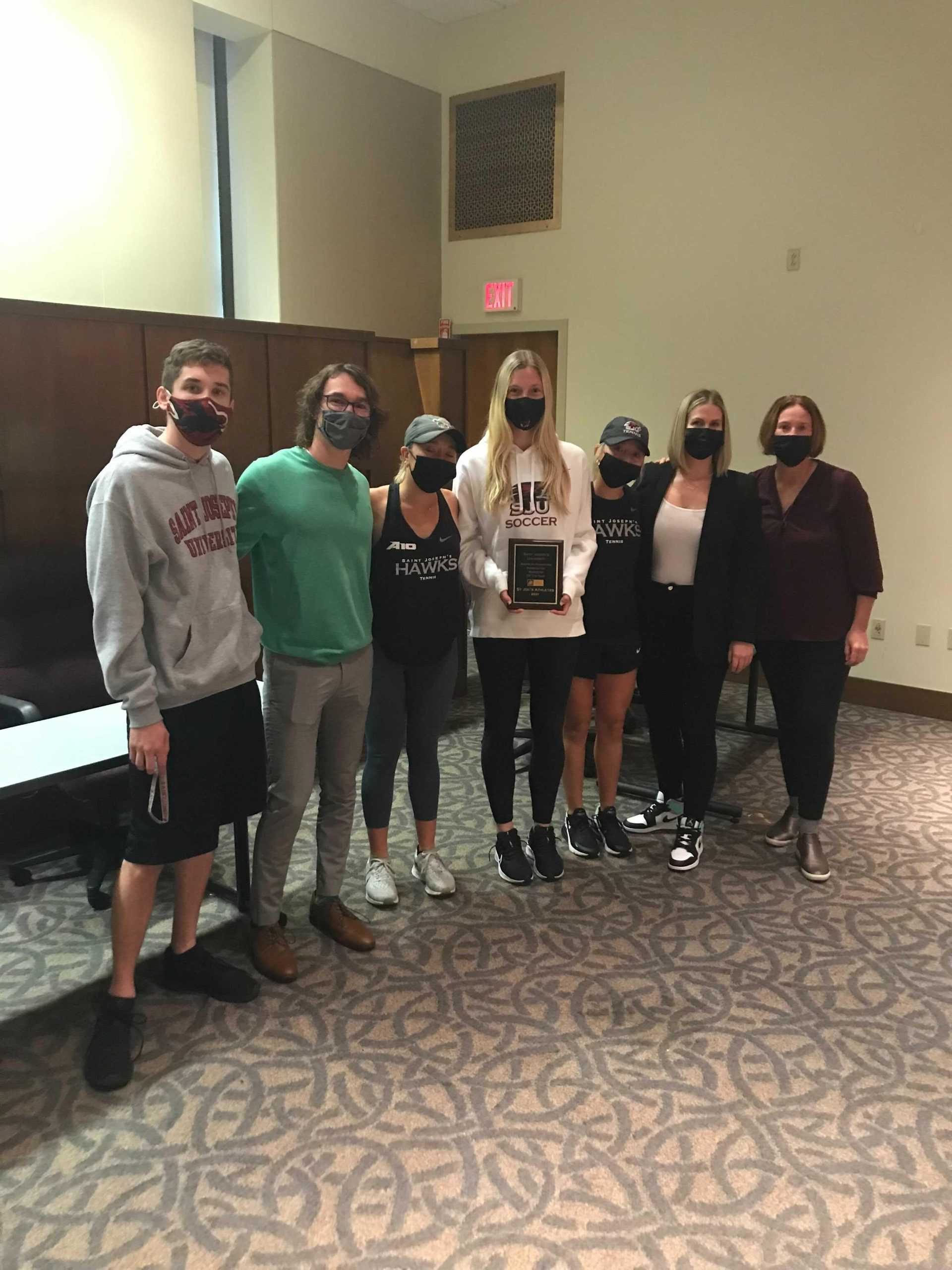On Oct. 8, St. Joe’s Chapter of the American Marketing Association (AMA) presented its annual Marketer of the Year Award to St. Joe’s student-athletes.
According to David Allan, Ph.D, chair of the marketing department and professor in the Erivan K. Haub School of Business, the organization decided to recognize the university’s student-athletes because of the “fantastic opportunity in front of them.”
As of July 1, student-athletes are able to monetize their name, image and likeness. This is new for student athletes as the NCAA had previously ruled that athletes were not allowed to receive any payment from third party sources.
Several student-athletes are already cashing in on this newfound opportunity. Redshirt senior men’s basketball forward Taylor Funk is sponsored by Restore Health and Wellness Therapy, Discover Lancaster and Make Your Mark Barbershop. Fifth-year Cassidy Atchison, a member of St. Joe’s nationally ranked field hockey team, is sponsored by the stick company Grays and its distributor Longstreth.
According to Jill Bodensteiner, Director of Athletics, who spoke on the panel at the award presentation, 36 sponsorship deals have been disclosed to the Athletics Department as of Oct. 8. Bodensteiner said that it is not the university’s job to help student-athletes broker deals, but the university can educate them about how to monetize their name, image and likeness on social media.
“We’re trying to teach [student-athletes] which platforms might be [best] for you,” Bodensteiner said. “We had a voluntary webinar. One of the things we did is we had the university’s director of social media teach which platforms are easiest to monetize.”
Junior Sophia Amato, a student-athlete on the women’s tennis team, landed a name, image and likeness deal with Barstool Sports. Amato said that some companies will send direct messages to her on social media to offer brand deals.
“You don’t know which ones are reputable, some you haven’t heard of,” Amato said. “They might sound good, but you want to know [more] before you dive into that.”
However, not all student athletes are able to capitalize from the new rules. Bodensteiner said that the Department of Homeland Security prohibits the monetization of name, image and likeness for a student-athlete student visa.
Therefore, none of St. Joe’s 40 international student-athletes can accept money stemming from the use of their name, image and likeness.
“It’s a shame. Those were a pretty big percentage of our student-athletes who [were offered] deals,” Bodensteiner said. “I’m working on advocating with the federal government for some relief there.”
Complications do not end there. According to Ashley Dabb, J.D., visiting sports and esports marketing professor in the Erivan K. Haub School of Business, the National Labor Relations Board General Counsel Jennifer Abruzzo released a memo on Sept. 29 supporting the position that student-athletes are more employee than student.
If student-athletes became employees who received employee benefits, it would make their college experience more difficult, Dabb said.
“Medicaid, taxes, insurance, different regulations that come into play in terms of salary versus exempt,” Dabb said. “It couldn’t be an expectation that an athlete would be able to handle all this and play at the top of their game.”
Bodensteiner agreed with Dabb’s assessment, arguing that while student-athletes should be able to profit from their name, image and likeness, deeming them employees would be “problematic.”
“College athletics would never be the same,” Bodensteiner said. “If they’re declared employees, it’s a game changer.”














































